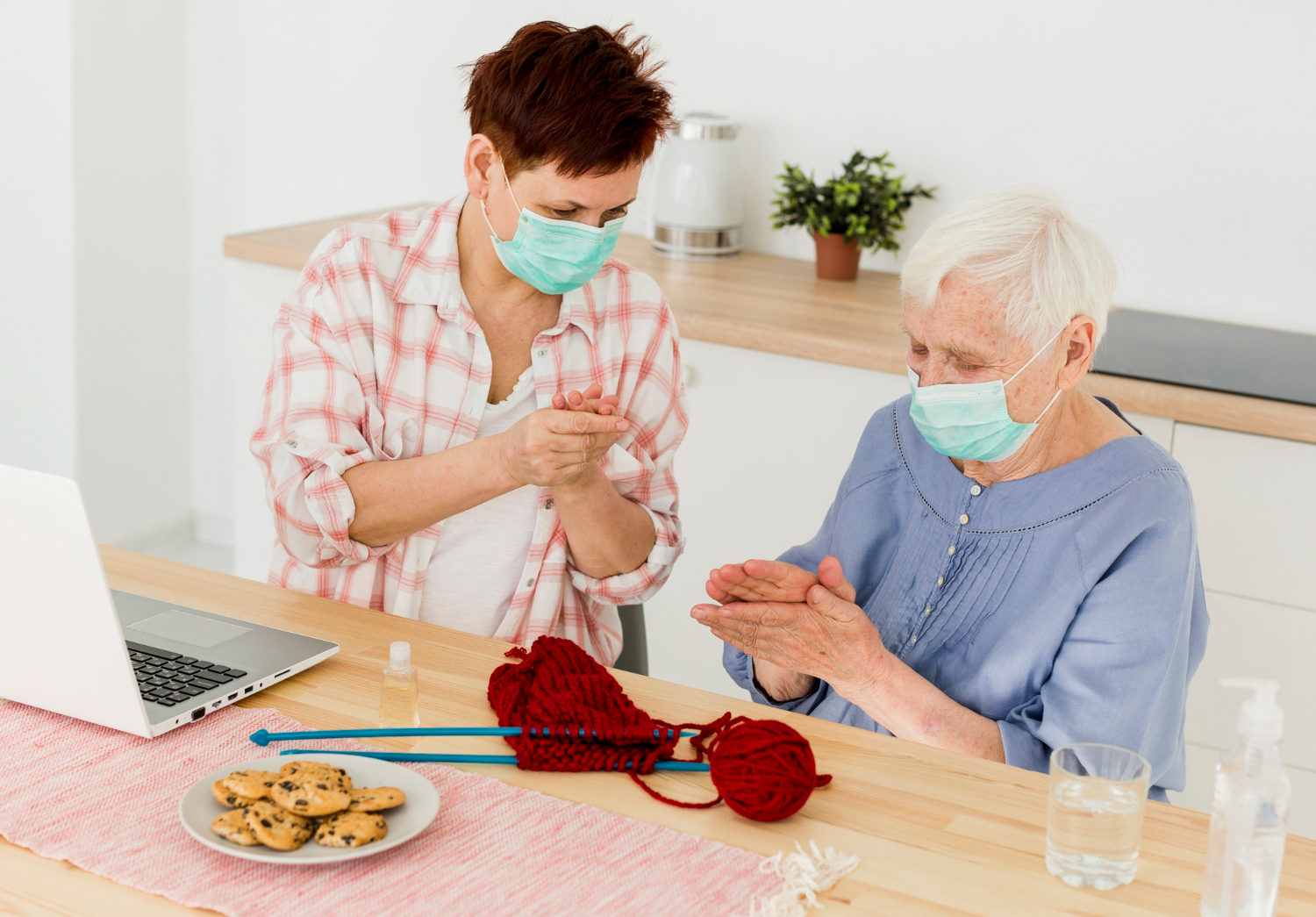The Importance of Communication for a Home Health Aide

When you think about good care at home, you might picture a friendly aide helping with meals, checking medication, or lending a hand with mobility. But one of the most important tools in a Home Health Aide’s kit is not a stethoscope or thermometer—it is the power of Communication Skills.
Whether you are an adult child researching home care for your parents, a senior wanting independence, or someone recovering after surgery, communication plays a central role in making sure care is safe, accurate, and compassionate.
Why Communication Matters in Home Care
Caring for someone is more than just performing tasks. It is about understanding needs, sharing information, and creating trust. For a Home Health Aide, clear communication is what keeps the entire care process running smoothly.
Think of communication as the bridge that connects you, your aide, and your healthcare team. Without that bridge, messages fall into the water—and misunderstandings can easily follow.
At AktRapid, we understand that effective communication forms the backbone of quality Home Care Services in Australia. It is what keeps care consistent and coordinated, whether it is about medication timing, health updates, or emotional comfort.

The Foundation: Effective Listening
Before an aide speaks, they must first listen. Effective Listening is more than just hearing words—it is about understanding tone, emotion, and context.
You might have noticed how comforting it feels when someone truly listens to you. They are not waiting for their turn to talk; they are focused entirely on you. That same attentiveness is essential in home care.
When a home health aide listens closely, they can pick up on subtle clues—a change in appetite, a sigh of fatigue, or even a hesitation that signals pain or discomfort. Listening helps the aide notice these small details, which often make a big difference in early detection of health changes.
Listening with empathy also helps build trust. A client who feels heard is more likely to express concerns openly, which improves overall care and emotional well-being.
Speaking with Clarity and Compassion
Words can comfort or confuse—it depends on how they are used. Clear Reporting and straightforward communication are essential, especially when discussing health updates or care plans.
For instance, an aide who says, “Your mother’s blood pressure reading this morning was higher than usual, and she felt lightheaded,” provides precise and useful information. Compare that to saying, “She did not feel well this morning.” The first statement offers clarity; the second leaves room for misinterpretation.
Home health aides must also speak with compassion. Communication is not only about what is said but also how it is said. A kind tone can make even difficult discussions feel more manageable. After all, no one likes to feel like they are being talked at. It is much better to feel like someone is talking with you.
Reporting and Documentation: Keeping Everyone on the Same Page
One of the most critical aspects of communication in home care is Clear Reporting. A well-trained home health aide documents daily observations, including medication schedules, mobility changes, appetite, mood, and overall condition.
Accurate reporting helps healthcare professionals and family members make informed decisions. It also prevents small issues from becoming serious health concerns.
At AktRapid, our aides are trained to provide detailed, timely, and clear communication. This ensures that every professional involved in the care process—doctors, nurses, therapists, and families—has access to reliable information.
Body Language: The Silent Communicator
Not every message needs words. Sometimes, body language says it all.
A smile can show reassurance, while crossed arms might signal discomfort or defensiveness. Home health aides learn to interpret both their client’s and their own body language to maintain trust and comfort.
A relaxed posture and eye contact can go a long way in helping a client feel respected and safe. And when words fail, a gentle touch on the shoulder can often speak louder than a thousand sentences.
Handling Difficult Conversations
Discussing topics like medication side effects, cognitive changes, or end-of-life preferences can be uncomfortable. But avoiding these talks only creates confusion and worry later.
Good communication means facing tough conversations with honesty and empathy. A calm tone, a patient ear, and simple language make it easier for everyone to understand and process the information.
A home health aide’s role includes not just delivering care but also helping families communicate more effectively with healthcare providers. That means being the steady hand during emotional moments and making sure important details are not overlooked.
Building Trust Through Consistent Communication
Trust is not built overnight—it grows through consistent, reliable communication. When you know your aide will keep you informed and listen to your concerns, you can relax and focus on your recovery or comfort.
Think of trust as a steady rhythm. When communication flows smoothly, it keeps the entire care process in sync—like a song played in perfect harmony. Missed notes, on the other hand, can create unnecessary tension or uncertainty.
At AktRapid, we believe that communication is what transforms care from a service into a partnership. You are not just receiving assistance—you are part of a shared effort toward well-being.
Communication and Cultural Understanding
Australia is wonderfully diverse, and home health aides often work with clients from different cultural backgrounds. Communication must respect personal preferences, beliefs, and languages.
An aide who understands that a nod may mean something different in another culture—or that certain topics are private—can adjust their approach accordingly. This sensitivity keeps communication respectful and inclusive.
At AktRapid, our home health aides are trained to communicate clearly while respecting cultural differences. This thoughtful approach creates comfort and strengthens relationships across Australia’s varied communities.
The Role of Communication in Teamwork
A home health aide is rarely working alone. They are part of a broader care team that includes nurses, therapists, doctors, and family members.
Communication keeps this team connected. A single overlooked detail—a missed symptom, an unrecorded observation—can disrupt coordination. But when everyone shares updates clearly and promptly, care remains consistent and reliable.
Good communication also prevents misunderstandings that can affect both health outcomes and emotional well-being. When everyone is on the same page, you can be confident that your care is being handled professionally and attentively.
Improving Communication Skills: A Continuous Process
Even the best communicators keep learning. Home health aides regularly refine their Communication Skills through training and feedback.
They learn to simplify medical jargon so it is easy for clients and families to understand. They practice patience and empathy in stressful situations. They also learn the importance of timing—knowing when to speak, when to listen, and when to simply offer silent support.
At AktRapid, continuous improvement in communication is a cornerstone of our Home Care Services. We know that good communication is not a one-time skill—it is a daily commitment.

How Communication Builds Confidence
When you are receiving care, knowing what is happening and why can make all the difference. Clear, open communication helps you feel in control of your own care plan.
You can ask questions, share concerns, and understand every part of your health journey. This creates a sense of confidence—not just in your aide but also in yourself.
For many seniors and families, that peace of mind is priceless.
The Connection Between Communication and Emotional Support
Physical care is only half of the picture. Emotional comfort is equally important.
A home health aide who listens patiently, responds kindly, and keeps you informed is not just doing a job—they are providing reassurance. They remind you that you are not alone.
It is amazing how something as simple as a daily conversation can lift a person’s mood. Sometimes, communication is the medicine that does not come in a bottle.
Communication in Emergency Situations
In emergencies, communication can save lives. Quick thinking and clear reporting allow the aide to inform family members or healthcare professionals without delay.
Knowing what to say—and how to say it—helps prevent panic and keeps everyone calm. Proper documentation afterward ensures that all necessary details are passed along for follow-up care.
At AktRapid, we take emergency communication seriously. Our aides receive thorough training on how to respond efficiently while keeping clients safe and informed.
Your Partner in Communication and Care
When you choose AktRapid, you are not only choosing skilled aides but also professionals who understand the importance of genuine, clear, and compassionate communication.
Our approach is centered on respect, empathy, and connection. We believe every conversation matters, whether it is about your care schedule or simply how your day is going.
To learn more about our services and how we support communication between aides, families, and healthcare professionals, visit our Employer Home Care page.
If you are looking for reliable Home Care Services in Australia where communication is valued as much as care, AktRapid is here to help.
Contact our team today to discuss how we can support your loved one’s comfort, safety, and well-being—one conversation at a time.
Visit AktRapid Employer Home Care to learn more.